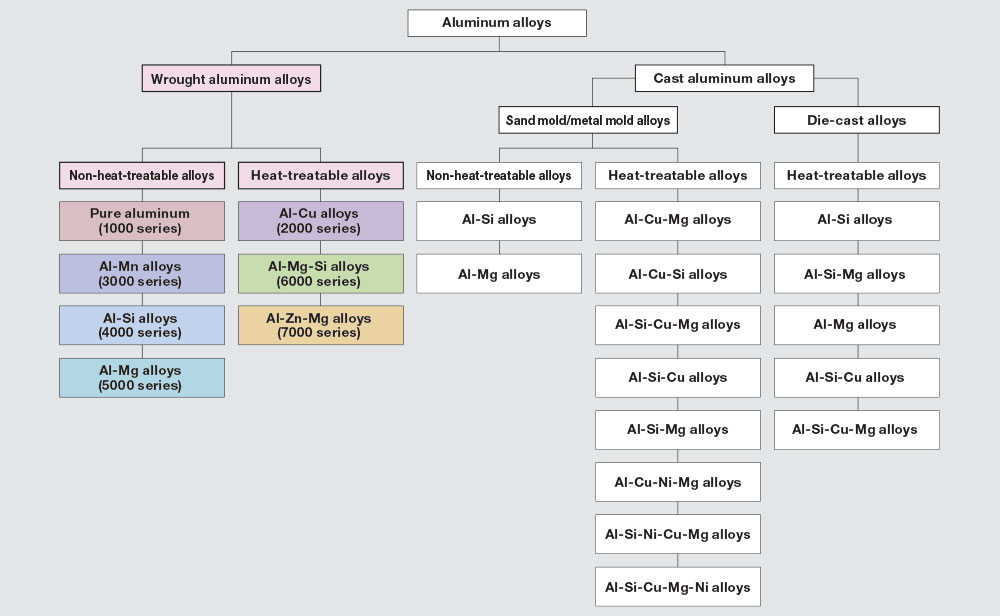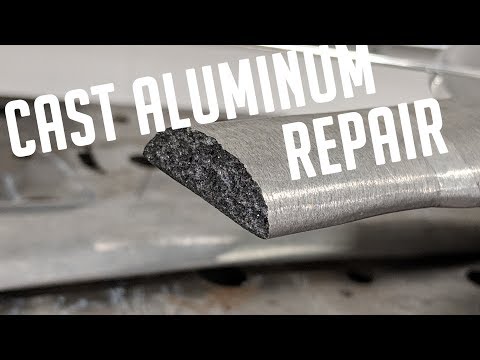The Basic Principles Of Alcast Company
The Basic Principles Of Alcast Company
Blog Article
Not known Facts About Alcast Company
Table of ContentsNot known Facts About Alcast CompanyAll about Alcast CompanyThe Greatest Guide To Alcast CompanyThe Only Guide for Alcast CompanyAlcast Company Can Be Fun For EveryoneThe 4-Minute Rule for Alcast Company
Chemical Contrast of Cast Aluminum Alloys Silicon advertises castability by reducing the alloy's melting temperature and boosting fluidness throughout spreading. In addition, silicon adds to the alloy's toughness and wear resistance, making it valuable in applications where sturdiness is vital, such as vehicle components and engine components.It also boosts the machinability of the alloy, making it less complicated to refine right into ended up items. In this method, iron contributes to the overall workability of aluminum alloys.
Manganese adds to the stamina of aluminum alloys and improves workability (aluminum casting company). It is frequently used in wrought light weight aluminum items like sheets, extrusions, and accounts. The presence of manganese help in the alloy's formability and resistance to cracking throughout manufacture processes. Magnesium is a lightweight component that provides strength and impact resistance to aluminum alloys.
The smart Trick of Alcast Company That Nobody is Talking About
It permits the production of light-weight parts with outstanding mechanical buildings. Zinc enhances the castability of light weight aluminum alloys and helps regulate the solidification process during casting. It boosts the alloy's strength and solidity. It is often located in applications where detailed forms and fine information are essential, such as attractive castings and particular vehicle parts.

The primary thermal conductivity, tensile strength, return stamina, and elongation differ. Among the above alloys, A356 has the highest thermal conductivity, and A380 and ADC12 have the cheapest.
Alcast Company - Questions

In precision spreading, 6063 is fit for applications where elaborate geometries and top quality surface area coatings are vital. Instances include telecommunication units, where the alloy's exceptional formability permits sleek and visually pleasing designs while maintaining structural integrity. In a similar way, in the Illumination Solutions sector, precision-cast 6063 elements produce elegant and effective illumination components that call for intricate shapes and excellent thermal performance.
It results in a better surface area coating and far better deterioration resistance in A360. The A360 exhibits remarkable elongation, making it suitable for facility and thin-walled parts. In precision casting applications, A360 is well-suited for sectors such as Consumer Electronics, Telecommunication, and Power Tools. Its boosted fluidness enables elaborate, high-precision elements like mobile phone cases and communication device housings.
Getting My Alcast Company To Work
Its distinct residential or commercial properties make A360 an important selection for accuracy casting in these industries, boosting item resilience and quality. Light weight aluminum alloy 380, or A380, is a commonly used casting alloy with several distinct attributes. It uses excellent castability, making it an ideal selection for accuracy spreading. A380 exhibits good fluidness when molten, making sure intricate and detailed molds are precisely duplicated.
In accuracy spreading, aluminum 413 radiates in the Consumer Electronic Devices and Power Equipment sectors. It's typically used to craft detailed elements like smartphone real estates, video camera bodies, and power tool cases. Its accuracy is amazing, with limited tolerances approximately 0.01 mm, making certain remarkable item setting up. This alloy's premium rust resistance makes it an exceptional choice for outside applications, guaranteeing site here lasting, long lasting items in the stated industries.
Get This Report about Alcast Company
Once you have actually decided that the light weight aluminum die casting process is ideal for your task, a crucial following step is picking one of the most appropriate alloy. The light weight aluminum alloy you choose will substantially influence both the casting process and the residential properties of the final product. As a result of this, you need to make your choice very carefully and take an educated method.
Determining one of the most appropriate light weight aluminum alloy for your application will indicate considering a wide range of features. These comparative alloy qualities adhere to the North American Die Spreading Organization's standards, and we have actually divided them into two groups. The first group addresses alloy characteristics that impact the production procedure. The 2nd covers qualities affecting the homes of the end product.
How Alcast Company can Save You Time, Stress, and Money.
The alloy you choose for die spreading directly influences a number of elements of the spreading process, like how simple the alloy is to deal with and if it is prone to casting flaws. Hot breaking, additionally referred to as solidification cracking, is a normal die casting defect for aluminum alloys that can result in interior or surface-level tears or fractures.
Specific aluminum alloys are more at risk to warm cracking than others, and your choice needs to consider this. An additional typical problem found in the die casting of aluminum is die soldering, which is when the cast sticks to the die walls and makes ejection tough. It can damage both the cast and the die, so you should search for alloys with high anti-soldering residential properties.
Rust resistance, which is currently a noteworthy characteristic of aluminum, can vary significantly from alloy to alloy and is an important particular to take into consideration depending upon the environmental problems your product will be revealed to (aluminum foundry). Wear resistance is another building typically looked for in light weight aluminum items and can set apart some alloys
Report this page